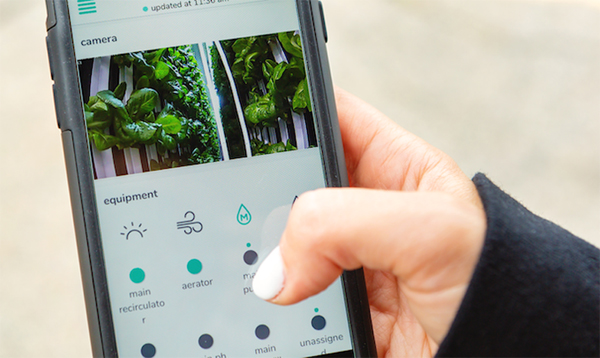- South Texas Students Meet Accordion Music Icons Los Tigres Del Norte In Edinburg Thanks To Khs America/Hohner Alianza Académica Initiative
- Fragile Planet Offers a Nighttime Wildlife Experience
- Falcons Soccer Off & Running
- Cameron County Receives Funds to Improve Two Parks
- Falcons Complete First Half of 32-6A
- School District to Help out Victims of California Wildfires
- Sand Castle Days Continued Despite Unexpected Weather
- Ready for District
- Discussion of Garbage Dumpster Rates, Agreements Between State & City on Highway Regulations, and More
- 31st Annual Shrimp Cook-Off is Right Around the Corner
Texas Schools Tap Container Farms to Fill Cafeterias with Fresh Produce
- Updated: November 8, 2019

Texas students are getting hands on, high-tech experience growing fresh produce inside converted shipping containers. Photo: Freight Farms
by Eric Galatas
SAN ANTONIO, Texas – Texas schools are using refrigerated freight containers converted into hydroponic farms as an extension of the classroom. At IDEA charter schools, students learn how to grow leafy greens and other vegetables, and deliver their harvests directly to the school cafeteria.
Caroline Katsiroubas – director of community relations at Freight Farms, the company that developed the technology – says schools are using the farms in part to shift traditional food culture and improve health by giving students nutritious options.
“In the San Antonio IDEA school’s campus, they don’t use salt or pepper in their cafeteria,” says Katsiroubas. “And they’re growing herbs specifically in their farm to make a seasoning.”
The University of North Texas also is using the container farms as a lab for a wide range of hands-on learning opportunities in biology, organic chemistry, nutrition and culinary arts, as well as business, computer science and marketing.
Many schools have developed certificate programs and majors around sustainable food production, which gives graduates a leg up on joining the growing ag-tech field or starting their own farm.
Because climate is controlled inside the container, food can be grown all school year long with a predictable commercial-scale output. Greenery units can support 13,000 plants at a time, producing harvests of up to 900 heads of lettuce per week.
Katsiroubas says the technology is useful in a state such as Texas, and notes Houston freight farmers played a critical role providing food during Hurricane Harvey.
“These container farms act as a way to control the food-supply chain, and make it resistant to shocks like extreme weather patterns or hurricanes or drought,” says Katsiroubas.
Katsiroubas says the container farms also are helping lower schools’ overall carbon footprint. Harvests happen just steps from the dining hall, which all but eliminates transportation emissions and packaging.
She says the farms use 99% less water than a traditional farm, running with as little as five gallons per day, less than the average dishwasher.
